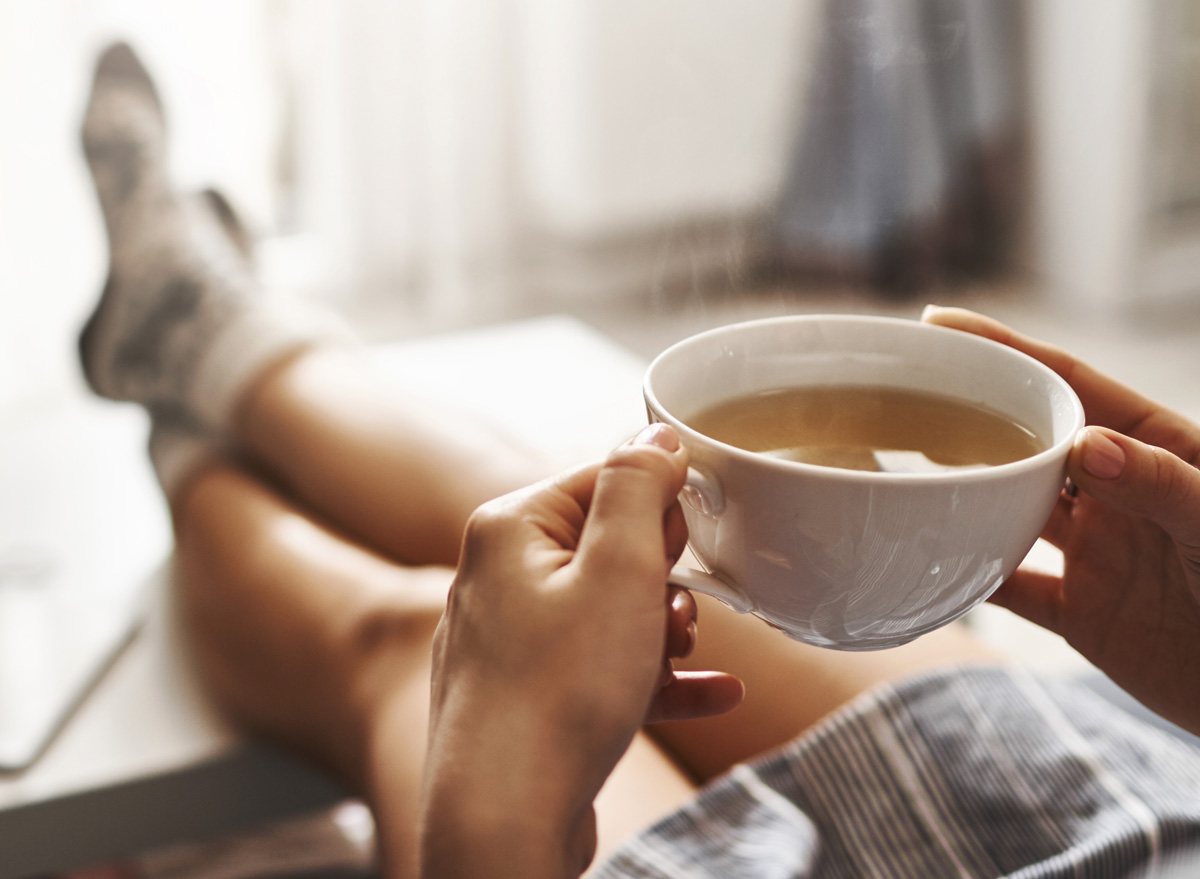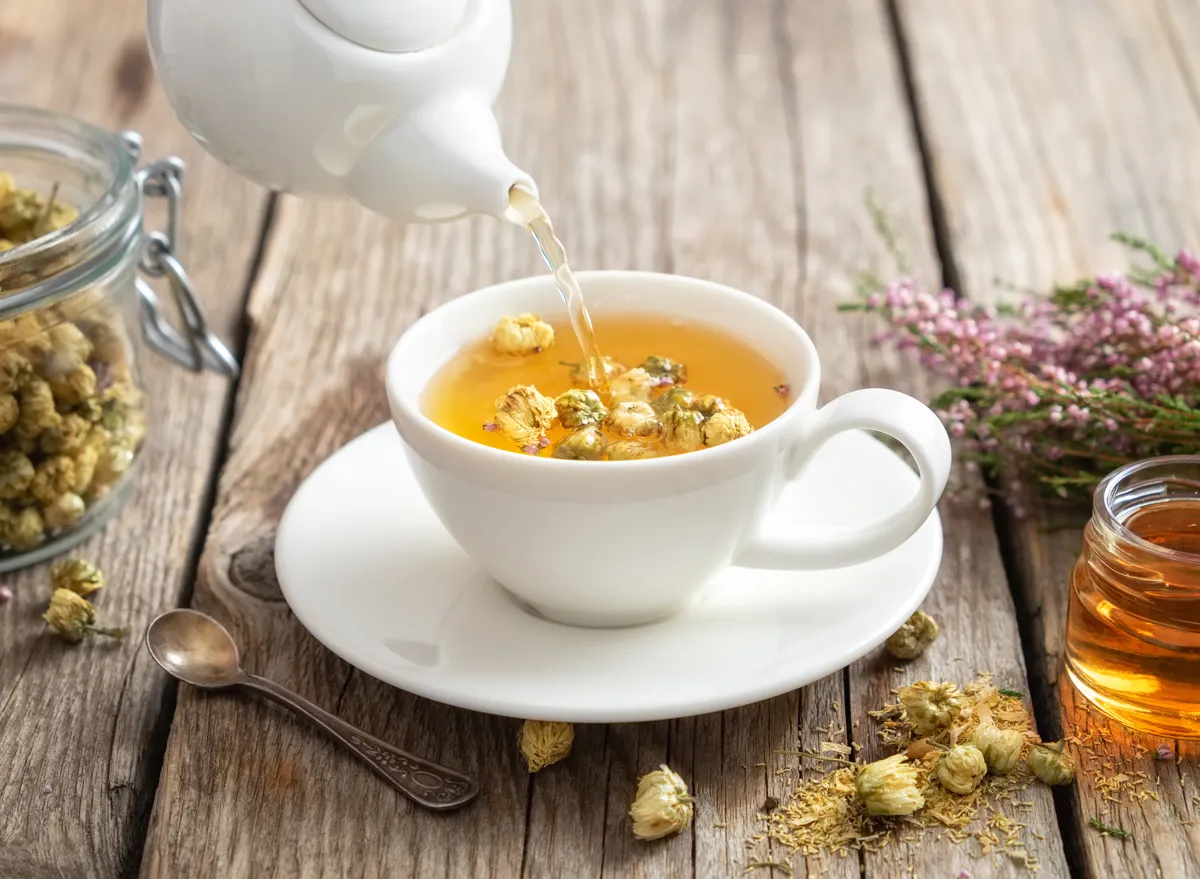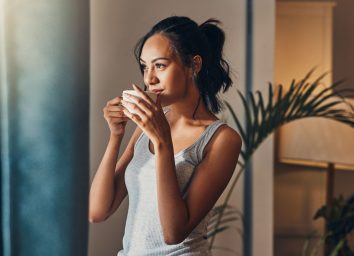One Major Side Effect of Not Drinking Tea, Says Science

Tea is consumed across the globe, at all times of the day. Some people have it in the morning instead of coffee, some enjoy tea time in the afternoon, and others love drinking tea before bed.
Regardless of when you drink it, tea can have lasting benefits like reducing your risk of cancer, helping with weight loss, and even improving your heart health.
But for those who don’t drink tea or believe it’s not worth their time, what else are they missing out on? According to research, one major of side effect of not drinking tea is that you might miss out on an opportunity to get better sleep.
This is because research continues to show that certain types of low-caffeine and herbal teas have properties that can help you fall asleep faster and improve your overall quality of rest.
Read more to learn about how tea helps you sleep, and for more healthy eating tips delivered straight to your mailbox, make sure to sign up for the Eat This, Not That! newsletter.
The importance of sleep
Not being able to sleep is a big deal. According to a report from Nature and Science of Sleep, insomnia and other sleep-related issues can have both temporary and long-lasting effects on your body.
Some short-term effects of not sleeping well include increased levels of stress, development of certain mood disorders, and impaired memory and cognitive ability.
Potential longer-term effects of insomnia include increased risk of cardiovascular disease, metabolic syndrome, type 2 diabetes, and hypertension (high blood pressure).
How tea can help you sleep

Thankfully, tea has been shown to be a helpful agent in reducing insomnia. One study from Integrative Medicine Research concluded that drinking herbal tea consistently over a 4-week period helped reduce the severity of the participants’ insomnia symptoms.
A 2017 study from Nutrients found that low-caffeine green tea helped reduce stress in middle-aged adults, which led to better overall sleep. They concluded that this is likely due to the levels of theanine found in green tea, which is an amino acid known to help lower levels of stress. In order to get the sleep-improving qualities of green tea, it’s important to choose one with low levels of caffeine.
Along with green tea, chamomile tea has also been known to help with sleep issues. According to the Journal of Education and Health Promotion, chamomile tea can help with quality of sleep by reducing stress, and has even been proven to help lower anxiety and depression symptoms, which are common factors in sleep disruption.
Which tea to choose
The important thing to remember when choosing a tea to help you sleep is to avoid the caffeinated options. This means you’ll want to stay away from black teas like earl grey, chai, or English breakfast, as well as any green or matcha teas (unless they say low-caffeine).
Read these next:








